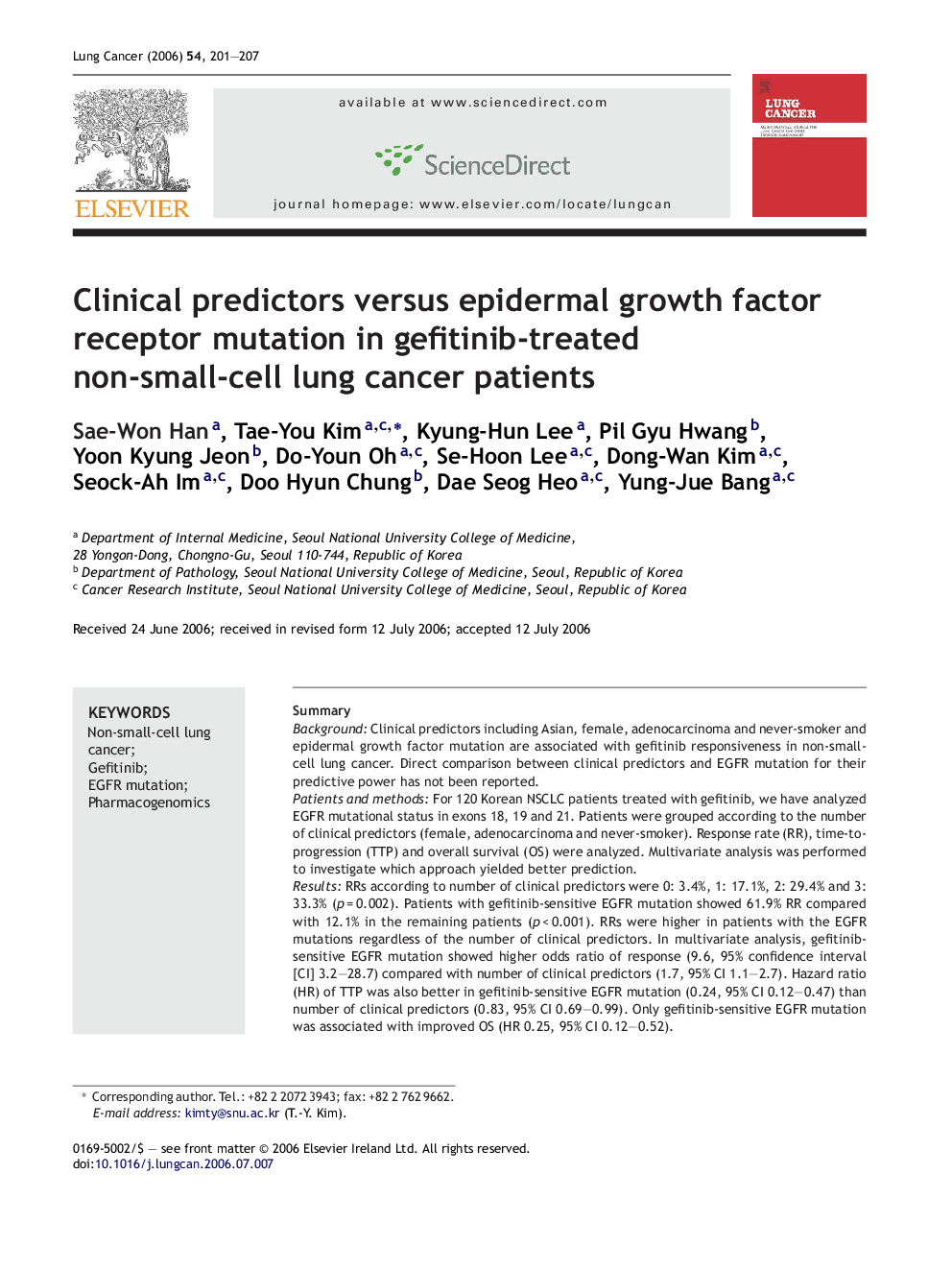| Article ID | Journal | Published Year | Pages | File Type |
|---|---|---|---|---|
| 2144227 | Lung Cancer | 2006 | 7 Pages |
SummaryBackgroundClinical predictors including Asian, female, adenocarcinoma and never-smoker and epidermal growth factor mutation are associated with gefitinib responsiveness in non-small-cell lung cancer. Direct comparison between clinical predictors and EGFR mutation for their predictive power has not been reported.Patients and methodsFor 120 Korean NSCLC patients treated with gefitinib, we have analyzed EGFR mutational status in exons 18, 19 and 21. Patients were grouped according to the number of clinical predictors (female, adenocarcinoma and never-smoker). Response rate (RR), time-to-progression (TTP) and overall survival (OS) were analyzed. Multivariate analysis was performed to investigate which approach yielded better prediction.ResultsRRs according to number of clinical predictors were 0: 3.4%, 1: 17.1%, 2: 29.4% and 3: 33.3% (p = 0.002). Patients with gefitinib-sensitive EGFR mutation showed 61.9% RR compared with 12.1% in the remaining patients (p < 0.001). RRs were higher in patients with the EGFR mutations regardless of the number of clinical predictors. In multivariate analysis, gefitinib-sensitive EGFR mutation showed higher odds ratio of response (9.6, 95% confidence interval [CI] 3.2–28.7) compared with number of clinical predictors (1.7, 95% CI 1.1–2.7). Hazard ratio (HR) of TTP was also better in gefitinib-sensitive EGFR mutation (0.24, 95% CI 0.12–0.47) than number of clinical predictors (0.83, 95% CI 0.69–0.99). Only gefitinib-sensitive EGFR mutation was associated with improved OS (HR 0.25, 95% CI 0.12–0.52).ConclusionEGFR mutation should be analyzed whenever possible for effective prediction of objective benefit from gefitinib in NSCLC patients with one or more clinical predictors.
